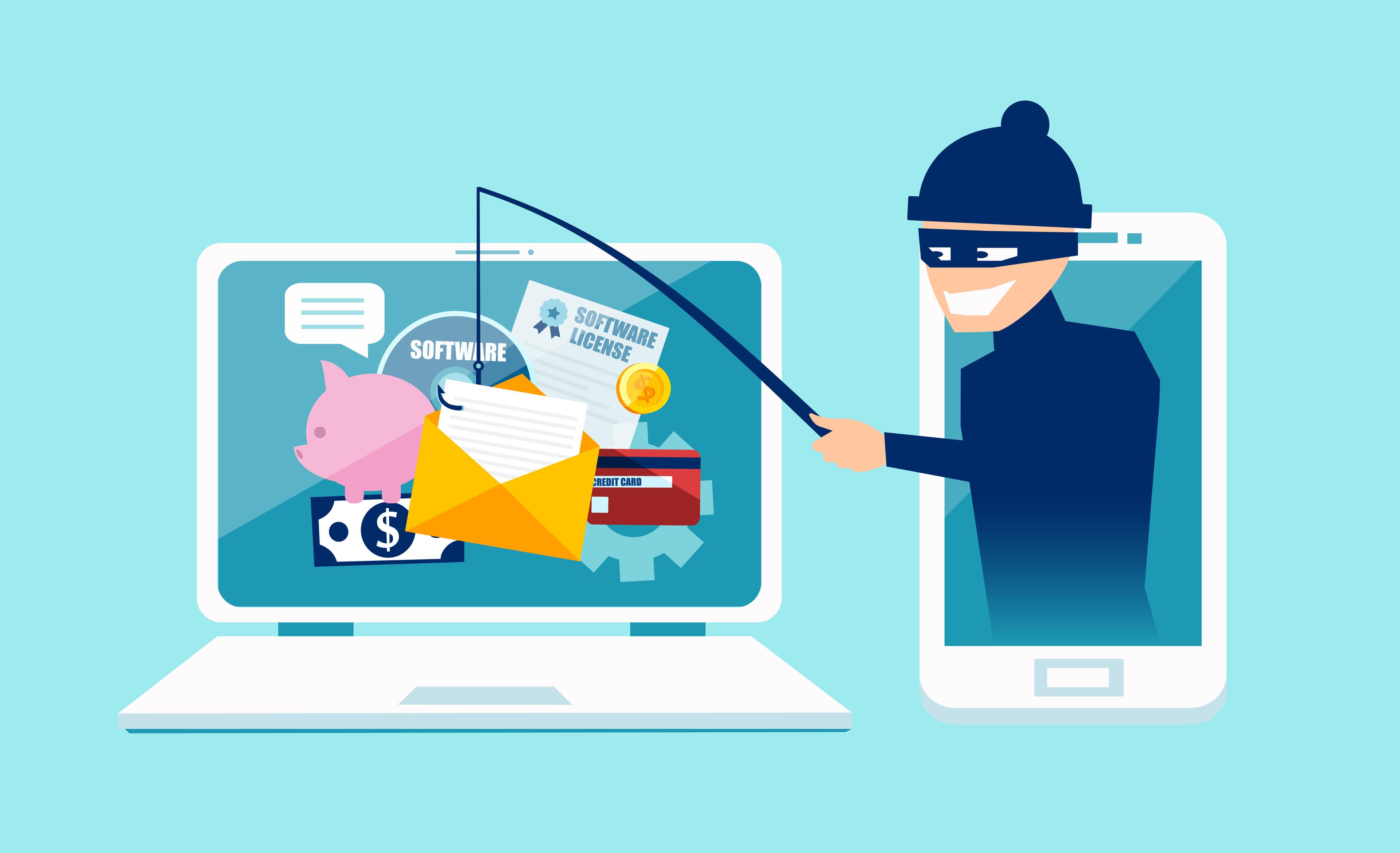In the age of digitalization, the internet has become a global village, enabling people to connect and transfer information with unprecedented ease. However, this interconnectedness has also exposed users to a myriad of online security threats. In particular, cybersecurity threats are a growing concern for businesses of all sizes, especially small to medium-sized businesses (SMBs) that often lack the resources to implement robust security measures. As a result, smaller businesses face higher cybersecurity risks and often fall prey to cybercrime.
A recent study by Cloudflare has shown that 83% Indian organizations experienced at least one cybersecurity incident in 2023. These incidents range from web attacks, phishing, supply chain attacks, resulting in huge financial losses.
As we move deeper into 2025, the landscape of cybersecurity is continuously evolving, with emerging threats becoming more sophisticated and harmful.
In the midst of cyber security awareness month, let’s explore top cybersecurity threats facing small businesses online in 2025, practical strategies for their prevention and the importance of cybersecurity in protecting sensitive data and maintaining business continuity.
Why are small business owners at risk of cybersecurity threats?
A cybersecurity threat refers to any potential malicious act that seeks to steal data, disrupt digital life, or cause havoc in general. These threats are committed by cybercriminals or hackers who exploit vulnerabilities in a system to gain unauthorized access. Some common types of cybersecurity threats include malware, phishing, ransomware, spyware, social engineering, DDOS attacks etc. In the age of AI, we are also seeing an increase in AI-Driven cyberattacks.
Small businesses often dismiss the risk of cyberattacks, believing they are not an attractive target for cybercriminals. However, small businesses are indeed at risk, as they hold valuable sensitive information, including customer data, social security numbers and credit card information, which can be sold on the black market. They are also seen as an easy target due to their lack of strong security defences. Here are some reasons why small business owners in India are at risk of cybersecurity threats.
Limited awareness and understanding of cybersecurity threats
Most small business owners in India focus more on their business operations, paying little attention to cybersecurity. They often lack the necessary understanding of the varying types of cyber threats such as malware, ransomware, phishing, data breaches, and others. This lack of knowledge makes them an easy target for cybercriminals who exploit their ignorance to launch cyberattacks.
Inadequate security measures
Many small businesses in India operate with limited resources, and as a result, they often undermine the importance of investing in robust cybersecurity measures. They tend to rely on basic antivirus software or firewall protection, which are insufficient to counter sophisticated cyber threats. Thus, their weak defense makes them more susceptible to cyberattacks.
Employee negligence
Human error continues to be a significant factor in cybersecurity breaches. Many small businesses do not provide their employees with formal security awareness training on cybersecurity best practices. As a result, employees may unknowingly click on malicious links, use weak passwords, or share sensitive information, thereby exposing the business to cyber threats.
Rapid digital transformation
With the advent of digital technology, many small businesses in India have been quick to adopt digital processes to improve their efficiency and reach. However, this rapid digital transformation often comes without adequate cybersecurity measures in place, creating vulnerabilities that cybercriminals can exploit.
Lack of regular updates and maintenance
Frequently updating and maintaining IT systems, and ensuring permissions are carefully managed are crucial in protecting against cyber threats. However, many small businesses neglect this aspect due to the perceived complexity or the lack of dedicated IT staff. This negligence leads to outdated systems with security loopholes that cybercriminals can easily exploit.
Top cybersecurity threats for small businesses
Let’s dive into the top cybersecurity threats that small businesses in India face today, providing insights on identification, mitigation, and preventative measures to ensure survival and growth in this interconnected business environment.
1. Phishing

Phishing remains one of the primary online security threats in 2025. It is a form of social engineering attack - a fraudulent activity carried out by cybercriminals where they impersonate a trustworthy entity, tricking unsuspecting users into providing sensitive data. This data can include personal information, bank account and credit card details, and passwords. The ultimate goal of phishing is to use this information to commit fraudulent activities, identity theft, or gain unauthorized access to systems.
Phishing typically occurs via email, where the attacker sends a seemingly legitimate message to the victim. These emails often appear to come from trusted entities like banks, popular e-commerce sites, or even internal colleagues or management. The email may contain a link to a fake website that mimics a legitimate one, tricking the victim into entering their login credentials or personal information, which the attacker then captures. Alternatively, the email may encourage the recipient to download an attachment, which when opened, installs malware on their device.
Globally, India is the third-largest country for phishing attacks. According to a 2024 report by Zscaler, India’s technology sector is the most targeted industry, facing nearly 33% of phishing attacks. The financial and insurance sector is also hit hard with these attacks. The Indian Computer Emergency Response Team (CERT-In) reported that in 2022 alone, there were over 1.16 lakh instances of cybercrime in India, with phishing attacks being one of the top threats faced by businesses.
To combat phishing, individuals should be cautious of unsolicited communication, especially those requiring immediate action. Installing a reliable anti-phishing toolbar and regularly updating software can also help identify and block phishing threats.
2. Ransomware
Ransomware is a type of malicious software designed to block access to a computer system or data until a ransom is paid. It is a digital hostage situation where hackers demand payment in exchange for the decryption key to unlock the affected files or systems.
Ransomware typically infiltrates a system through a phishing scam, where the user is tricked into clicking on a malicious link or opening an infected email attachment. It can also occur through drive-by downloading, where a user unwittingly visits an infected website and malware is downloaded and installed without their knowledge. This malicious software is designed to encrypt a victim's data, rendering it inaccessible until a ransom is paid.
Once installed, the ransomware encrypts the user's files and leaves a ransom note with instructions on how to pay the ransom, typically in an untraceable digital currency.
Just recently, technology service provider C-Edge Technologies was hit by a ransomware attack, which caused payment systems across nearly 300 small Indian local banks to shut down temporarily. According to the State of Ransonware 2024 survey by Sophos, 96% of Indian companies hit by ransomware over the past year sought assistance from law enforcement and/or government agencies to help with the attack.
In 2025, ransomware threats have become more targeted, particularly towards high-value data belonging to businesses and government entities.
3. Malware
Malware, short for malicious software, is a type of software designed to infiltrate or damage a computer system, server, client, or computer network without the owner's informed consent. It's a broad term used to classify a variety of harmful software types, including viruses, ransomware, spyware, and trojans. Unlike software bugs, malware is intentionally created by cybercriminals to exploit and harm the targeted system or gain unauthorized access to personal data.
A malware attack can infiltrate a computer system in several ways. The most common method is through phishing emails that trick users into clicking on malicious links or downloading infected attachments. Malware can also be embedded in software downloads from untrustworthy sources or spread through removable media like USBs. It can exploit software vulnerabilities or use social engineering techniques to deceive users into installing malicious software.
India, with its booming digital economy, is unfortunately a prime target for cybercriminals. According to a 2024 report by Sonicwall, malware attacks in India rose by 11 per cent to 13,44,566 in 2024 from 12,13,528 in 2023.
4. DDoS attacks
A Distributed Denial of Service (DDoS) attack is a cyber-attack targeting websites and online services. It aims to make these resources unavailable to users by overwhelming them with a flood of internet traffic. The attack can be initiated from multiple connected devices, often comprising a network of compromised computers, termed a 'botnet'.
The process typically involves three parties: the victim (your business), the attacker, and the bots (compromised computers). The attacker begins by exploiting vulnerabilities in one computer system and making it the DDoS master. The attack master, then identifies and infects other vulnerable systems, creating a network of botnets. Once the botnet is established, the attacker commands it to flood the target with requests, effectively causing a shutdown of services.
According to a report by Tata Communications, organizations in India are seeing a surge in DDoS attacks. A DDoS attack can be devastating for small businesses. The immediate impact is the unavailability of your website or service, which can lead to loss of revenue. Moreover, the aftermath of a DDoS attack can be equally damaging, with potential loss of customer trust and damage to your brand's reputation. Customers may hesitate to use your services again if they believe their data might be at risk
5. SQL injections
SQL (Structured Query Language) Injection is another common cyber security threat. It is a code injection technique that attackers use to exploit vulnerabilities in a website's database. The attacker manipulates a site’s SQL queries by inserting malicious code into a query via a user input data. If successful, this allows them to view, modify, and delete data in the database.
An SQL Injection attack involves an attacker inputting deceptive SQL statements into a web form or through the URL to manipulate the website's database. The attacker finds a vulnerable input field on your website (like a login form or search box). They proceed to enter SQL commands into these fields, intending to trick the server into executing those commands. If successful, these commands can reveal sensitive information stored in your database or even give control of the database to the attacker.
A study by Akamai Technologies showed that SQL injection attacks accounted for nearly 65% of all web application attacks in India during Q1 2021. The consequences of SQL injections can be disastrous for small businesses. If an attacker manages to exploit a database through SQL injection, they can gain unauthorized access to sensitive data, such as customer information, business financials, and proprietary information. This breach can lead to severe financial losses and damage to the business’s reputation.
Impact of security attacks on small businesses
Financial losses
Cybersecurity breaches can lead to substantial financial losses for small businesses. These financial implications can stem from several factors.
First, there is the immediate financial loss due to theft of financial information or disruption of business operations. For example, businesses are forced to pay a large ransom in a ransomware attack.
Second, businesses may face fines or lawsuits for failing to protect customer data. In the case of a phishing attack, attackers can gain access to sensitive business information, financial details, and confidential customer data. In the worst-case scenario, businesses may have to close their operations due to the devastating effects of a successful phishing attack.
Additionally, the cost of rectifying a breach, which could involve system repairs, data recovery, and strengthening security infrastructure, can also be significant. A survey by Hiscox found that the average cost of a cyber breach for a small business was $200,000, a figure that could easily cripple many small businesses.
Reputation damage
Trust is an essential commodity for any business. For small businesses, their reputation can often be their most valuable asset. A cybersecurity breach can erode trust and damage a company's reputation significantly, leading to loss of customers and decreased sales. Restoring a damaged reputation takes time and resources. In some cases, the reputational damage from a cyber attack can be irreparable.
Operational disruption
Cybersecurity breaches can disrupt business operations, leading to loss of productivity and potentially halting business activities.
Depending on the severity of the breach, businesses might need to shut down their systems to rectify the issue, leading to downtime and loss of business. Such disruption can be costly for small businesses.
In this aspect, ransomware can have devastating effects on small businesses. In some cases, despite paying the ransom, there is no guarantee that the files will be decrypted. There's also the potential for re-infection, as paying the ransom doesn't remove the vulnerability that allowed the initial infection.
Legal and Regulatory Consequences
With regulations like General Data Protection Regulation (GDPR) in Europe and the California Consumer Privacy Act (CCPA), businesses are now legally required to protect customer data. Non-compliance or a data breach can lead to hefty fines and penalties, adding to the financial burden on small businesses. In India, the Digital Personal Data Protection (DPDP) Act, passed in 2023, is set to require businesses to implement measures to protect personal data.
Emerging trends of cybersecurity threats for small businesses
Internet of Things (IoT) Attacks
As more devices are connected to the internet, the risk of IoT attacks has escalated. Cybercriminals can exploit vulnerabilities in these devices to gain unauthorized access to networks and data. The best defense against IoT attacks is to change default usernames and passwords on all devices, regularly update devices, and disconnect devices when they are not in use.
Deepfakes
The advancement in AI has led to the rise of deepfakes, where an individual's likeness is used to create highly realistic but fake audio or video content. This technology poses a significant threat to user privacy and can be used for misinformation. To counter this, individuals should seek information from multiple, reliable sources and be skeptical of shocking or unbelievable content.
Cloud vulnerability
As more people leverage cloud services for storage and computing, cloud vulnerabilities have become a significant concern. These vulnerabilities can expose sensitive data and systems to cybercriminals.
AI-driven cyberattacks
With the increasing use of AI, cybercriminals are now using AI to automate their attacks, making them more sophisticated and harder to detect. To prevent these, users should invest in security solutions that leverage AI and machine learning to identify and respond to threats proactively.
How to protect your website and business from security threats?
For small business owners with limited technical knowledge, navigating the complexities of website security can seem daunting. Yet, protecting your digital assets is simpler than you might think, and it starts with understanding and implementing basic security measures
1. Keep your software updated
Use reliable security software that can detect and block threats. Cybercriminals exploit vulnerabilities in outdated software. Ensure all components of your website—CMS (Content Management System), plugins, scripts, and apps—are regularly updated. These updates often contain critical security patches that protect against new threats.
2. Use strong passwords and multi-factor authentication
Implement strong, unique passwords for your website's admin areas and require them for all users’ laptops and mobile devices. Also make sure that your organization’s wi-fi network is secure. Consider using a password manager to generate and store complex passwords. Additionally, enable multi-factor authentication (MFA) to add an extra layer of security, significantly reducing the risk of unauthorized access and phishing attack.
3. Avoid public Wi-Fi
Everyone loves public Wi-Fi. After all, it’s free. But if you submit passwords or open private business systems while using public Wi-Fi, you could be putting your business security at risk.
You can keep yourself safe from many cyber threats by just avoiding public Wi-Fi. It is not a safe way to browse the internet. No matter how secure your smartphone is, public Wi-Fi is still a way for attackers to hack your device and steal your data.

So, don’t use public Wi-Fi, especially on devices you’re using for your business or contain data related to your business.
4. Install a Web Application Firewall (WAF)
A WAF serves as a shield between your website and the traffic it receives, filtering out malicious requests. It can protect against various attacks, including DDoS and SQL injection, and is available as a hardware appliance, server plugin, or cloud service. A robust firewall can prevent unauthorized access to your network and provide an additional layer of security.
5. Secure your website with HTTPS by obtaining an SSL certificate
HTTPS, indicated by a padlock icon next to your website's URL, ensures that the data transmitted between your website and its visitors is encrypted. Obtain an SSL (Secure Socket Layer) certificate to enable HTTPS. This not only secures your website but also boosts its credibility among users.
Using an SSL certificate protects your website visitors from data theft. You may choose to buy an SSL from a reputable company or, if you have root access to your server, get a free one.
Google Chrome labels websites without SSLs as Not Secure, a label that is likely to turn people away.
An SSL Certificate encrypts all the data flowing between your website and the user’s browser, avoiding any risk of data leakage or stealing in-between. It helps you to secure sensitive data like customers’ payment information, passwords and personal information.
6. Use high quality web hosting
As you probably know, web hosting is what makes your website visible on the internet. And like all things, some hosting services are better than others.
High-quality web hosting not only boosts your website’s performance, but it also helps you to secure your website from being hacked.
Most quality hosting protect against DDoS attacks and have features that you need to run your business smoothly, such as:
- Daily malware scanning
- Daily backups
- Professional help
Check out the 10 things all good hosting plans have here.
7. Regularly back up your website
Regular backups are your safety net in the event of a security breach. Ensure you have an automated system in place to back up your website's data daily. Store backups in multiple locations, including off-site cloud storage, to safeguard against data loss from physical or cyber disasters. Regular data backups can also be a lifesaver in case of a ransomware or malware attack, as this can help restore your system.
8. Educate your team and encourage safe practices
Human error often leads to security breaches. Train your employees on basic security practices, such as recognizing phishing emails, suspicious links and other scams, as well as safely managing passwords. A well-informed team is your first line of defense against cyber threats.
Create a strong culture of security awareness in your small business.
Train employees to recognize phishing emails or suspicious links. They should be aware not to click on unverified links or download attachments from unknown sources. Most importantly, employees should report any suspicious activity immediately.
9. Monitor and respond to security threats
Invest in security monitoring tools that can detect and alert you to suspicious activity in real time. Being proactive about monitoring can help you respond quickly to threats, minimizing potential damage. Consider hiring a security professional or working with a managed security service provider if your budget allows.
For small businesses handling sensitive customer data, it could be beneficial to hire a cybersecurity expert to manage and monitor your network for potential threats.
10. Install Antivirus softwares and firewalls, and use VPNs
Antivirus software and firewalls are critical tools for cyber defense. Antivirus software can detect and remove malicious code before it can do any damage. Firewalls can prevent unauthorized access to your network. Use reliable antivirus and anti-malware software, and ensure they are regularly updated to protect against the latest threats.
Virtual Private Networks (VPNs) can protect data transmitted over the internet by encrypting it.
Beyond the basics: advanced security measures
Once you've implemented the basic security measures, consider taking additional steps to further enhance your website's security:
- Content Delivery Network (CDN): A CDN can distribute your site's load, improving its ability to handle high traffic volumes and protect against DDoS attacks.
- Website Scanning Tools: Use tools that scan your website for vulnerabilities and malware. Regular scans can identify and mitigate threats before they cause harm.
- Secure Access Control: Limit access to your website's backend, as well as sensitive data and systems to necessary personnel only. Assign user roles carefully, ensuring individuals have only the access level necessary for their duties. The fewer people with access, the lower the risk of a potential breach.
- Incident Response Plan: Have a plan in place for responding to a ransomware attack. This should include steps for isolating affected systems, notifying the appropriate authorities, and commencing recovery operations.
Prepare a robust website security plan: 5-step cybersecurity checklist
1. Assess your current level of website security

The first step to getting your website security in shape is to understand your site’s areas of weaknesses and strengths through:
1. Online malware scanners
Using one of the many free online virus scan tools is a great start to identify breaches that have already occurred. Only then can you take corrective steps.
2. Internal security policy
Calculate your businesses’ cyber threat preparedness by evaluating the strength of your security policies and best practices.
3. Level of data security
Data is becoming an invaluable asset and a goldmine for attackers. Assess how well your website is protecting valuable data like names, passwords and banking details or Aadhaar numbers.
4. Strength of passwords
The complexity of passwords required for any kind of site login is an indication of the strength of your broader security protocols. How often do you require employees to change their passwords? Do you have two-factor login authentication?
2. Consider and adopt best practices
Different companies in your space are on various learning curves when it comes to website security. Those who are smart create a strong framework to ensure maximum website security.
Look at best practices from these players and adopt those best suited to protect your business interests:
Securing high-risk web assets
While fundamental security layers must be in place across your website, fortify areas containing critically sensitive information, such as customer databases.
Always updated software
Keeping your website malware-free means not skipping on software updates, despite the daily grind. This goes for everyone who has access to your business site and systems — make sure they know that prompt software updates protect your business.
Getting leadership buy-in
Beginning a website security revamp requires senior decision-makers to be fully supportive of the project. Present a business case if necessary, and highlight potential threats to brand reputation and revenue loss.
Tightening need-based user access
Be cautious in allowing too many colleagues or external partners to access your site’s settings beyond the period needed for updating or maintaining it. The fewer people who have access to critical systems, the better.
3. Prepare an essential toolkit
If you have run your website through an online virus scan or audit tool, it’s time to:
- Review the data
- Identify responses to potential gaps
- Put them into action
Remember, you are sitting on a time bomb while hackers continue to look for vulnerable websites. Yours might be next on their hit list.
The right tools can create a nearly watertight website, insulated from possible intruders.
Here are some website security essentials you might want to review with your hosting services partner:
HTTPS with SSL
An SSL certificate adds a vital layer of security by encrypting everything your visitor submits to your site, keeping these messages private. It can also help improve your site ranking on search engine results pages.
PCI compliance
This is needed for websites that accept payments online. It offers additional security to debit and credit card transactions made online.
Regular backups
If the web is your primary, or even a significant source of business for you, make regular website backups (preferably automated). This will help you get your site back up and running if it is ever taken down by a virus, malware or other attack.
Content Management System (CMS) updates and plug-ins
WordPress, Joomla and HubSpot are the most popular CMS apps on the web. As such, websites built on these platforms are frequent targets of hackers, who look for the smallest crack to break in. Set your CMS, as well as its associated plugins and apps on an automatic update mode.
4. Plan for crisis scenarios
While it’s tough to recreate a website break-in or intrusion incident, you should still plan to face one. You could also hire an ethical hacker to find website vulnerabilities for you.
Failing to plan is planning to fail.
Use the below practices to plan in advance for a website security crisis:
Have a contingency budget
Set aside money to address a future cyberattack, data breach or other security crisis. Keep in mind this could require some public relations (PR) efforts to reassure customers and repair the damage to your reputation.
Designate a Special Point of Contact
Ask volunteers, preferably with IT or development backgrounds, to be ready to handle any future crises. They can use online virus scan tools and report threats to your CSO or CTO.
Keep your workers aware
Your employees can be either your biggest defenders … or a liability when a crisis shows up. Train and keep them up to date on what they can do to keep business systems safe and secure.
Find the right web security partners
Take external help by finding website security partners like GoDaddy who can consult with you on an ongoing basis.
5. Boost your defences
Hackers never rest, and neither should you. Using the below regularly will reduce your security risks:
Regular security audits
Analyse every corner of your website with the right set of tools like automated online virus scanners.
Risk assessment
Calculate website strengths and weaknesses with industry safety benchmarks. ALE (Annual Loss Expectancy) is a popular metric to estimate the risk posed by your site to your business.
Vulnerability scanning and monitoring
Quarterly audits might not be sufficient to protect you from an ongoing security risk. Engaging in consistent security monitoring is always a great practice.
Abraham Lincoln once said, “Give me six hours to chop down a tree and I will spend the first four sharpening the axe.”
Planning takes time, compared to the actual execution. The consequences of taking a casual approach to website security can be disastrous. Many small businesses shut shop within six months of a cyberattack.
Safeguard your website and online presence as a small business owner
In conclusion, the digital era has brought a plethora of benefits for businesses but also a host of cybersecurity threats. Small businesses are particularly at risk due to their lack of resources and security measures. However, by understanding the common threats, implementing robust security measures, and educating their teams, small businesses can significantly reduce their risk and ensure their sensitive data is protected. Cybersecurity is not just a necessity for large corporations, but for businesses of all sizes.
Remember, cybersecurity is not a one-time task but an ongoing process.
Editor's Note: This article contains content written by Benjamin Taylor and Harpreet Munjal. It was first published on October 4, 2024 and updated on January 3, 2025 and September 19, 2025.








